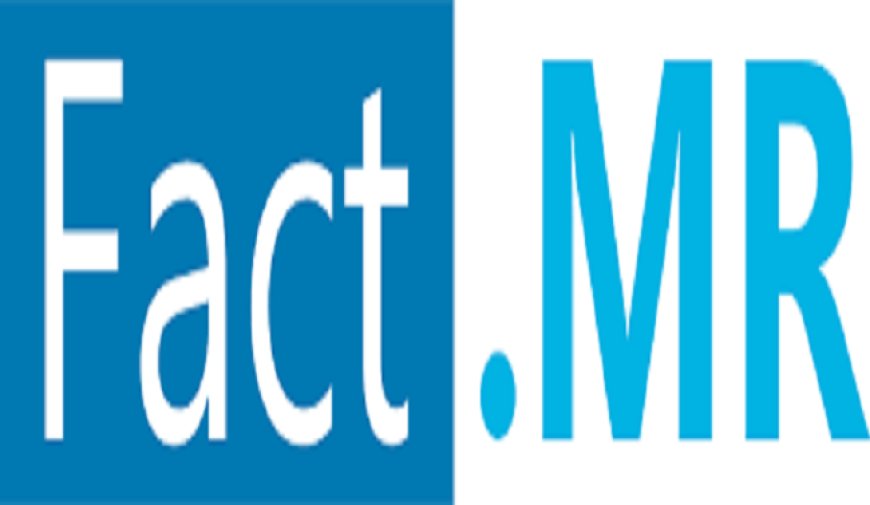Healthcare Expenditure Growth Creates Opportunities for Dyslipidemia Vendors
The global dyslipidemia therapeutics market, valued at US$ 41.55 billion in 2023, is projected to expand at a compound annual growth rate (CAGR) of 2.5% over the next decade.

The global dyslipidemia therapeutics market, valued at US$ 41.55 billion in 2023, is projected to expand at a compound annual growth rate (CAGR) of 2.5% over the next decade. According to a market study by Fact.MR, global demand for dyslipidemia therapeutics is expected to reach a market revenue of US$ 53.2 billion by the end of 2033.
Dyslipidemia, characterized by abnormal lipid levels in the blood, is prevalent in regions like North America. The aging population contributes to its rising prevalence, leading to increased demand for effective treatments. Awareness among patients and healthcare professionals about associated risks drives early diagnosis and therapeutic demand. Sedentary lifestyles and poor dietary habits further contribute to dyslipidemia incidence. Market growth is fueled by novel drug classes, targeted therapies, and advancements in drug delivery systems. North America’s robust pharmaceutical industry plays a key role in introducing innovative products.
Vital indicators shaping the future of the industry
Research and Development (R&D) remains a critical driver for the market’s future. Ongoing efforts focus on innovative treatments, novel drug classes, and targeted therapies. Regulatory decisions, including approvals and safety guidelines, significantly shape the market. Monitoring clinical trials and pipeline developments provides insights into future opportunities. Additionally, the integration of digital health technologies—such as telemedicine and mobile apps—enhances disease management and patient outcomes.
List of Key Companies Profiled in The Report
- Mylan
- AstraZeneca
- Novartis AG
- Abbot Laboratories
- Amgen
- Kowa Pharmaceuticals America Inc.
- Sanofi
- Novelion Therapeutics
- Merck & Co.
- Pfizer
- Others
Challenges hindering the market growth
In North America, patent expirations have led to the introduction of generic alternatives for blockbuster dyslipidemia drugs. This generic competition poses a significant challenge to branded therapeutics, impacting their market share and revenue.
Among dyslipidemia treatments, statins are commonly prescribed. However, they can have side effects such as muscle pain, liver abnormalities, and gastrointestinal issues. These safety concerns, along with adverse events, may affect patient compliance and limit the widespread adoption of these therapeutics.
Competitive Landscape
In the competitive landscape of dyslipidemia therapeutics, companies are actively launching new products and expanding their global reach. These providers are expediting the introduction of novel drugs by seeking regulatory approvals, aiming to gain a competitive edge over their peers.
For instance, in May 2022, Zydus Lifesciences Limited, an Indian pharmaceutical company, filed for regulatory approval for its new drug called Bemdac. This drug was intended for treating patients with uncontrolled LDL-cholesterol (LDL-c). Upon approval, Bemdac would be a significant addition to Zydus’s dyslipidemia and cardiovascular medication portfolio.
What are the new treatments for dyslipidemia?
New treatments for dyslipidemia include novel cholesterol-lowering solutions and innovative therapies. For example, Brazilian start-up Crop Biotecnologia is developing a peptide-based treatment expressed in tomatoes that targets LDL cholesterol by inhibiting the PCSK9 protein. Additionally, 89Bio Inc. is working on a drug called pegozafermin, aimed at treating hypertriglyceridemia. Gruthan Bioscience LLC is also developing new cholesterol-lowering drugs.
What is the best treatment for dyslipidemia?
The best treatment for dyslipidemia depends on individual patient needs and may include a combination of lifestyle changes and medications. Currently, novel therapies being developed, such as those targeting LDL cholesterol with new mechanisms or addressing hypertriglyceridemia, offer promising advancements in treatment.












